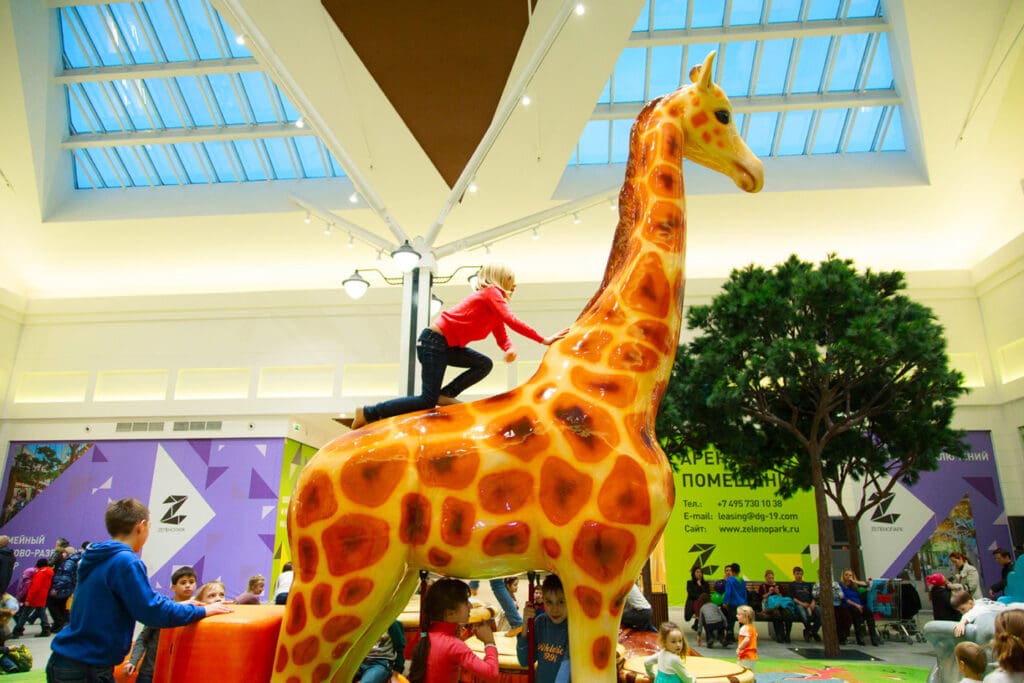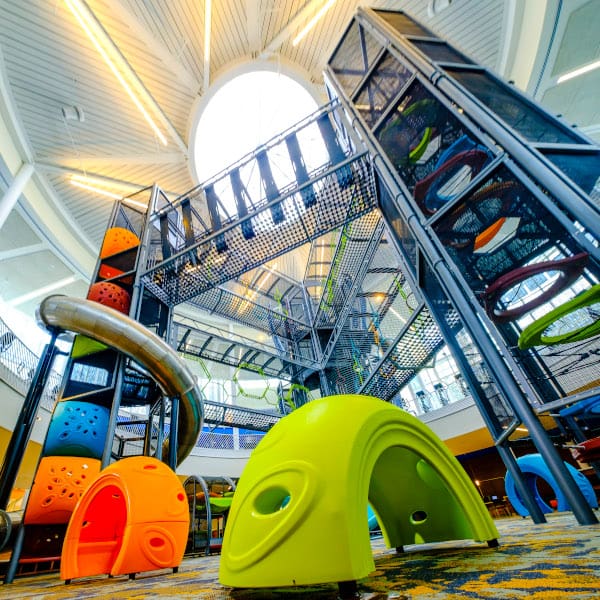Play Perfected

Play Perfected
By Grant Walter, Soft Play Chief Executive Officer
While we might get more wise, worldly and generally more skilled with age, kids will always have the upper hand on adults when it comes to all things imagination-related. As adults, the real world has a way of encroaching on those vivid, colorful imaginations we all thrived in as kids, filling us with self-consciousness and doubt rather than the pure, uninhibited joy that is so constant in childhood. Having seen this loss of unbridled, creative happiness countless times in adults, I have come to call it being “broken.” When the fervent belief in Santa Claus, the Easter Bunny and Tooth Fairy starts to give way to the often sour grimace of adulthood, it’s a sure sign a person is getting broken.
Once broken, imagination takes a distant back seat to the unrelenting responsibilities of life and career, robbing us of the overwhelming sense of curiosity, wonder and awe that fuels the imaginative world of a child. In the recent movie Baby Boss, Tim, the seven-year old boy at the heart of the film, is a wonderful example of those overwhelming senses that saturate childhood, providing its magic and, most importantly, an understanding of how tentative, fragile and exceptionally special it is.
Encouraging Frequent Imaginative Play
As innate as those imaginative abilities are in kids, however, this busy world can challenge even a child to use their imagination to its fullest. Often times, we need to provide kids a safe, designated place for them to unleash those huge imaginations. An interactive play area that is specifically designed to encourage imaginative play and spur curiosity and adventure can help children enjoy games and activities in a way that can benefit all facets of their development.
In such areas, the playground becomes a pirate ship, a treehouse or the secret headquarters of a global spy agency. In other words, that play area allows the child to fill its spaces with the imagination that can take them to any place or time in the world, a footing for adventure. And while that active, creative type of play is a natural ability for a child, the onslaught of the digital world in its many forms, from video games to streaming media and everything in between, poses a significant threat to a child’s ability to do what they do best. For that reason and countless more, providing kids a sanctuary from the sedentary habits formed from that digital world and giving them those designated play areas is absolutely crucial in helping them develop in the most natural, healthy way possible.
The Benefits of Imaginative Play
While no one has ever mistaken me for a scientist, my opinions on such matters are actually backed up by research into the benefits of play in a child’s life. Active, imaginative play has a dramatically positive impact on the physical, emotional, social and intellectual development of a child, going so far as to reduce lifetime levels of anxiety and build decision-making skills that will always benefit them. Given the unique and rapid brain development into the early school age years, active play that is rooted in imagination improves coordination, confidence, socialization and problem-solving skills. In other words, active play pays dividends at home, in the classroom and on the ball fields at a time in children’s lives where they are establishing the building blocks that their entire lives will be built upon.
No one is refuting the tremendous benefits technology provides all of us, children included. However, particularly in such a digitized world, providing kids the ability to put down the tablets, step away from the screens and let their imagination envelope them in curiosity and fun through active play is crucial in helping them develop and reach their potential.
Less screen time and more play time will help our kids reach their goals throughout their lives, and, although it’s sometimes tough to absorb, they’re only children once. As adults, we need to make sure it counts.
